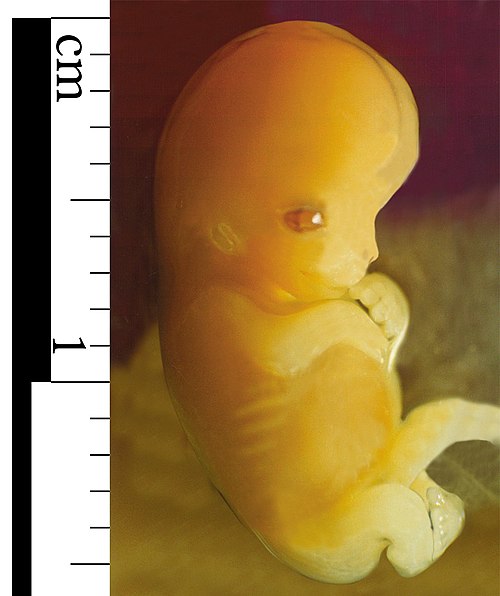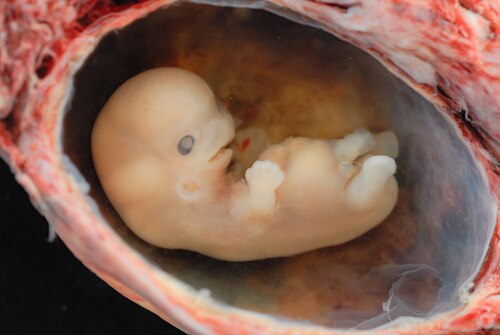Zygotenoun
A fertilized egg cell.
Zygotenoun
the cell resulting from the union of an ovum and a spermatozoon (including the organism that develops from that cell)
Zygote
A zygote (from Greek ζυγωτός zygōtos or , from ζυγοῦν zygoun or ) is a eukaryotic cell formed by a fertilization event between two gametes. The zygote's genome is a combination of the DNA in each gamete, and contains all of the genetic information necessary to form a new individual.
Embryonoun
In the reproductive cycle, the stage after the fertilization of the egg that precedes the development into a fetus.
Embryonoun
An organism in the earlier stages of development before it emerges from the egg, or before metamorphosis.
Embryonoun
In viviparous animals, the young animal's earliest stages in the mother's body
Embryonoun
In humans, usually the cell growth up to the end of the seventh week in the mother's body
Embryonoun
(botany) A rudimentary plant contained in the seed.
Embryonoun
The beginning; the first stage of anything.
Embryonoun
The first rudiments of an organism, whether animal or plant
Embryoadjective
Pertaining to an embryo; rudimentary; undeveloped; as, an embryo bud.
Embryonoun
(botany) a minute rudimentary plant contained within a seed or an archegonium
Embryonoun
an animal organism in the early stages of growth and differentiation that in higher forms merge into fetal stages but in lower forms terminate in commencement of larval life
Embryo
An embryo is the early stage of development of a multicellular organism. In general, in organisms that reproduce sexually, embryonic development is the part of the life cycle that begins just after fertilization and continues through the formation of body structures, such as tissues and organs.







